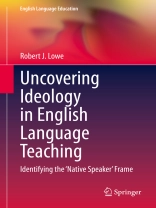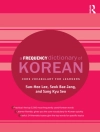This book introduces the concept of the ‘native speaker’ frame: a perceptual filter within English Language Teaching (ELT) which views the linguistic and cultural norms and the educational technology of the anglophone West as being normative, while the norms and practices of non-Western countries are viewed as deficient. Based on a rich source of ethnographic data, and employing a frame analysis approach, it investigates the ways in which this ‘native-speaker’ framing influenced the construction and operation of a Japanese university EFL program. While the program appeared to be free of explicit expressions of native-speakerism, such as discrimination against teachers, this study found that the practices of the program were underpinned by implicitly native-speakerist assumptions based on the stereotyping of Japanese students and the Japanese education system. The book provides a new perspective on debates around native-speakerism by examining how the dominant framing of a program may still be influenced by the ideology, even in cases where overt signs of native-speakerism appear to be absent.
Innehållsförteckning
Foreword.- 1. Setting the Scene: Motivation, Location, and Methods.- Part I: Theorising the ’Native Speaker’ Frame.- 2. ’Native Speakers’ and Native-speakerism.- 3. The ’Native Speaker’ Frame: Establishing a Theoretical Framework.- Part II: Identifying the ’Native Speaker’ Frame.- 4. Equality in a ’Professional Utopia’.- 5. Educational Technology and the ’Native Speaker’ Frame.- 6. Professionalism, Training, and Reinforcement.- 7. Official Policy and Acts of Cultural Resistance.- JDACP and ’The Inverted Curriculum’ – Changing Perspectives.- 8. Conclusion.- Appendix A: Sample Interview Agenda.- Appendix B: Detailed Coding Categories.
Om författaren
Robert J. Lowe is a lecturer in the Department of English Communication, Tokyo Kasei University, Japan. He is the co-author of Teaching English as a Lingua Franca: The Journey from EFL to ELF (2018) and co-editor of Duoethnography in English Language Teaching: Research, Reflection, and Classroom Application (2020).












